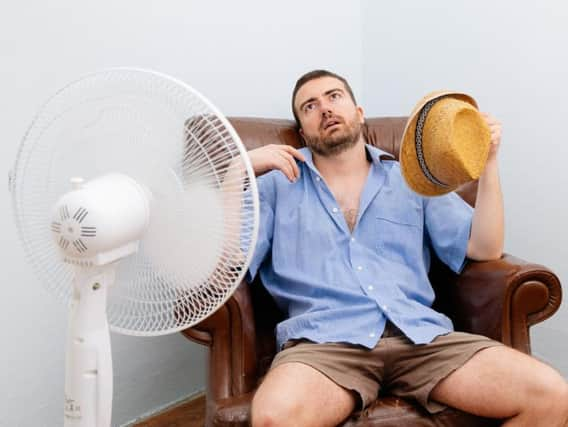Why you need to keep your cool when the weather gets hot


Extreme heat can cause significant health risks and it is best to know how to keep you and your family safe in the event of the hot weather.
Particularly at risk from the heat are the elderly, the young and the chronically unwell.
Advertisement
Hide AdAdvertisement
Hide AdHowever, people who have physical jobs, particularly if they work outside, can also find themselves more vulnerable.
If you’re on medication, it’s a good idea to stock up if the weatherman is predicting a heatwave because one of the key pieces of advice is to stay indoors or in the shade whenever possible and particularly between the hottest hours of 11am and 3pm.
A lot of what to do may seem like common sense, but often we underestimate the effects of heat on our bodies.
The main health problems produced by extreme heat are dehydration and/ or overheating, which can worsen the symptoms of existing heart or breathing problems.
Advertisement
Hide AdAdvertisement
Hide AdMore severely, you could also suffer from heat exhaustion or heatstroke.
Heat exhaustion is where the body starts to become very warm, and we start to lose water and salt by sweating.
This may lead to feelings of lethargy, increased thirst and headache.
Heatstroke is more serious and is where the body is no longer able to cool itself and body temperature becomes dangerously high (sunstroke is when this is caused by prolonged exposure to direct sunlight).
This can be life threatening, but is thankfully rare.
Advertisement
Hide AdAdvertisement
Hide AdEven if you’re not in one of the at-risk groups, just keeping safe and cool will make you much more comfortable.
Consume cold drinks regularly, particularly water, and ditch the tea, coffee and alcohol as these can further dehydrate the body.
Stay out of the sun and try to avoid getting too hot.
Regular cool baths or showers, or indeed splashing your face with cold water, will also help you.
Dress appropriately. Try to wear natural fabrics that are loose and not restricting. Keep ventilation going with sandals.
Advertisement
Hide AdAdvertisement
Hide AdWear a hat and sunglasses to protect your eyes and use a high SPF sun cream if you’re going outside.
Keep rooms cool by closing curtains or blinds and leave a fan or AC on if you have them.
If you or someone else feels unwell, find somewhere cool to rest and have plenty of fluids to drink.
Always seek medical help if symptoms such as breathlessness, chest pain, confusion, weakness, dizziness or cramps get worse, or don’t get worse.